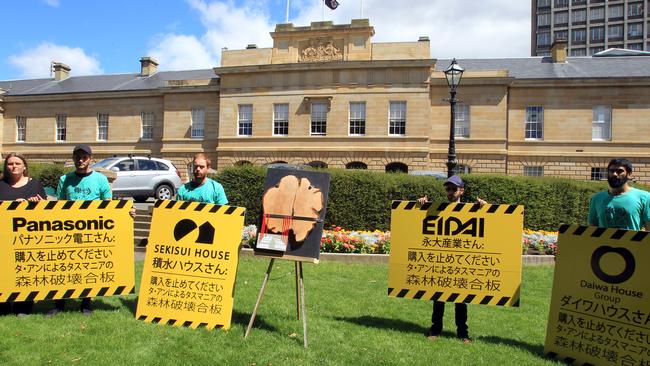Advocates fear new anti-protest laws may ‘frighten people into silence’
A civil libertarian has warned the State Government’s second attempt at anti-protest laws could involve campaigners being fined for waving placards or asking people to sign a petition.
Politics
Don't miss out on the headlines from Politics. Followed categories will be added to My News.
A CIVIL libertarian has warned the State Government’s second attempt at anti-protest laws could involve campaigners being fined for waving placards or asking people to sign a petition.
Independent candidate for the Upper House seat of Nelson and lawyer Richard Griggs said the proposed new laws — aimed at replacing those deemed unconstitutional by the High Court — could criminalise “an extraordinarily wide range of actions”.
He said his interpretation of the draft laws suggested anyone on public land or waterways speaking against the actions of a business could face fines of up to $5000 — even if they were on land unconnected to the company they were protesting against.
This would include people stopping others on the street to sign a petition against proposed high-rises in Hobart, Mr Griggs said, or those waving placards in Salamanca Place opposing eco-tourism developments.
“As a result of the above, people will be frightened into silence,” Mr Griggs said.
“They will not speak up and engage in debate or distribute information for fear of breaking this very widely drafted new offence.”

University of Tasmania constitutional law expert Brendan Gogarty said the legislation should have been entirely rewritten, rather than amended.
He agreed it was “overly broad and excessive in scope”, described it as “punitive and unbalanced”, and argued it did not adequately address the issues raised by the High Court when it struck out the original Act.
“The Bill continues to focus myopically on the rights of business without any commensurate concern for civil or political rights,” Dr Gogarty said.
“The Bill should clarify that citizens have the right to associate, criticise government and business, and express their political views.
“Given every single provision replicates an existing common law and/or code offence, the Bill could simply be dropped.”
The High Court in 2017 overturned the previous Workplaces (Protection from Protesters) Act 2014 after a challenge from former Greens leader Bob Brown. The legal fight cost Tasmanian taxpayers more than $350,000.
HIGH COURT STRIKES DOWN ANTI-PROTEST LAWS
The Liberals pledged to resurrect the anti-protest laws ahead of the 2018 state election.
MORE TASSIE NEWS TODAY
SUN SETS ON CEO’S TENURE AT RACT
FRIENDS PAY TRIBUTE TO ‘THOUGHTFUL, CHARMING’ MAN
MAN HURT IN HORROR FALL OF PLANE STAIRS AT AIRPORT
COUNCIL CEO SACKED AFTER RAISING CONCERNS
TA ANN MILL STAFF PLEAD FOR ANSWERS
LAST DITCH VC EFFORT FOR TEDDY SHEEAN
Resources and Building and Construction Minister Sarah Courtney said submissions on the proposed new laws would be considered by the Justice Department.
“Every Tasmanian should have the right to go about their lawful work without the threat of being intentionally shut down and their business harmed,” Ms Courtney said.
“We’ve twice taken this policy to elections and received the support of Tasmanians.”


